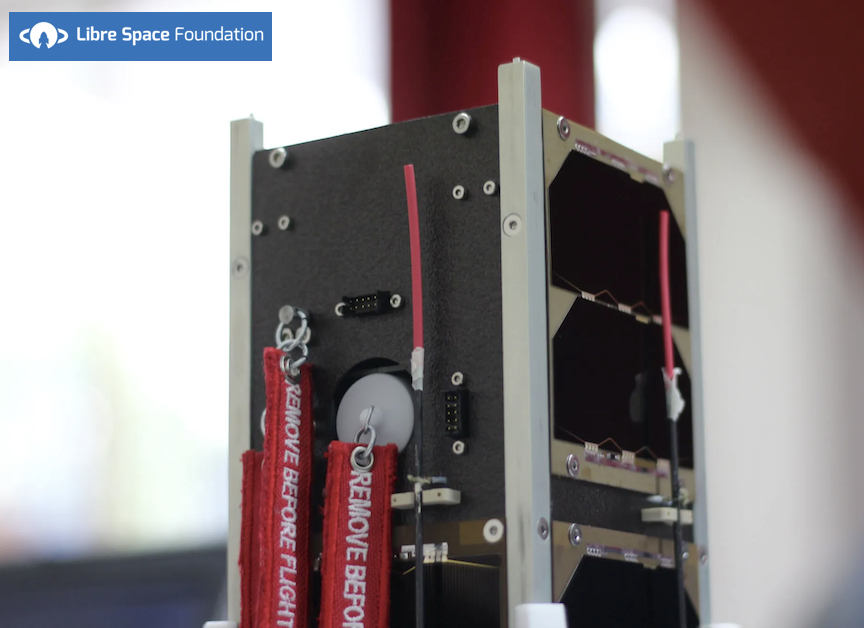

Libre Space Foundation is announcing another major project involving undertaking the PHASMA project regarding the design and development of three open-source CubeSats. The three CubeSats are tasked to oversee the electromagnetic spectrum and its use in space. For this project, Libre Space Foundation has signed a contract of 2 million Euros with the European Space Agency (ESA).

Mr. Frédéric Rouesnel, Greek National Telecom Satellite Project Mission Project Manager recalled that “On 26 November 2021, the ministry of Digital Governance in Greece implemented an agile path to materialize the Greek National Satellite Project aiming to enhance the capabilities of Greek Small & Medium Enterprises (SMEs) in satellite technologies and applications, especially for communications and Earth Observation, and to empower the country to build the necessary expertise for satellite systems design and implementation locally. Libre Space Foundation, already an open-source organization well involved in space domain, through PHASMA mission is well aligned with this vision, ambition, challenge and is well positioned to deliver a first CubeSat constellation for IOD/IOV purpose related to electromagnetic spectrum which is useful for the local space community.”

For the needs of the PHASMA project, Libre Space Foundation will design and develop three open-source CubeSats to conduct a series of significant experiments in space. More specifically, these experiments will oversee and analyze the spectrum of terrestrial radio frequency transmissions with the help of Artificial intelligence. The goal of this experiment is to enable the quantification of the global spectrum use, locate potential sources of interference and detect possible violations of signal transmission. Moreover, these experiments will oversee and analyze signal transmission from other satellites. Contributing, thus, to identifying and tracking a satellite faster and more accurately, combining satellite identification techniques that the organization already uses.

These technologies are highly significant because not only do they contribute to “the prompt identification and accurate tracking of a satellite early on, upon its deployment, but they also contribute to maintaining a good overview of the situation in space (Space Situational Awareness)” points out Pierros Papadeas, Executive Director of the Libre Space Foundation. Lastly, the three satellites of the PHASMA mission will be used to study the scattering and propagation of signals in the ionosphere and to analyze different navigation systems such as GPS, Gallileo, BaiDu and GLONASS.
With this activity, Libre Space Foundation aims “not only to enhance, expand and explore further open-source space technologies and their capabilities but also to contribute to helping Greece play a significant role in open-source space technologies”, states Manthos Papamatthaiou, Chairman of the Libre Space Foundation. The organization aims to create a sustainable and robust open-source space tech ecosystem within the country and enhance Libre Space Foundation’s role as a vital and significant component, a strong supporter of open-source space technologies in Greece.
